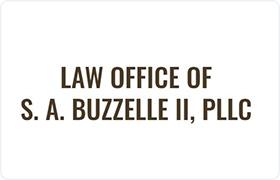Gilbert Bankruptcy & Debt Lawyer, Arizona
Sponsored Law Firm
-
 x
x

Click For More Info:
-
Law Office of S.A. Buzzelle II, PLLC
14050 N 83rd Avenue Suite 290 Peoria, AZ 85381» view mapBankruptcy & Debt Law Your Trusted Bankruptcy Attorney
If you are in need of legal services for matters relating to bankruptcy and divorce, rely on Law Office of S. A. Buzzelle II, PLLC in Peoria, AZ.
800-873-4991
Mark Atchley
✓ VERIFIEDWhile attempting to keep to a budget and redistribute debt payment in order to keep your family fed or run your business, bills will continue to pile ... (more)
Alison C. Briggs
✓ VERIFIEDAlison Briggs is very knowledgeable and efficient. She really cares about her clients needs. No situation is ever too difficult for her to handle. Mis... (more)
Brad A Denton
✓ VERIFIEDBrad represents primarily small businesses, and so he practices primarily in the areas of law that small businesses need. As a practical matter, Brad ... (more)
Letty Segovia
Chris J. Dutkiewicz
Martin J. Berkley
FREE CONSULTATION
CONTACTFREE CONSULTATION
CONTACTFREE CONSULTATION
CONTACT Stanley A. Buzzelle II Peoria, AZ
Stanley A. Buzzelle II Peoria, AZ Practice AreasExpertise
Practice AreasExpertise



